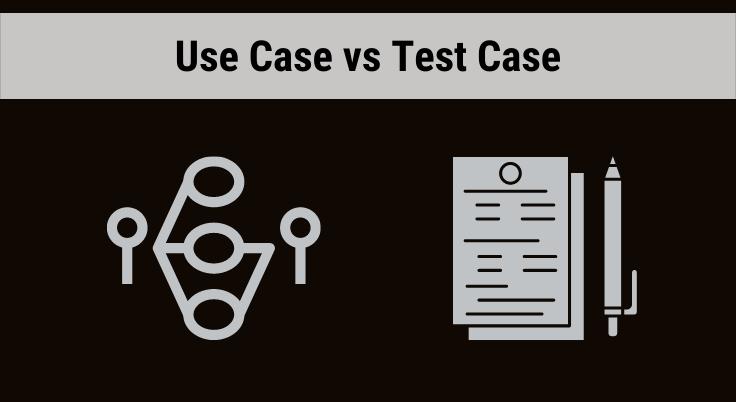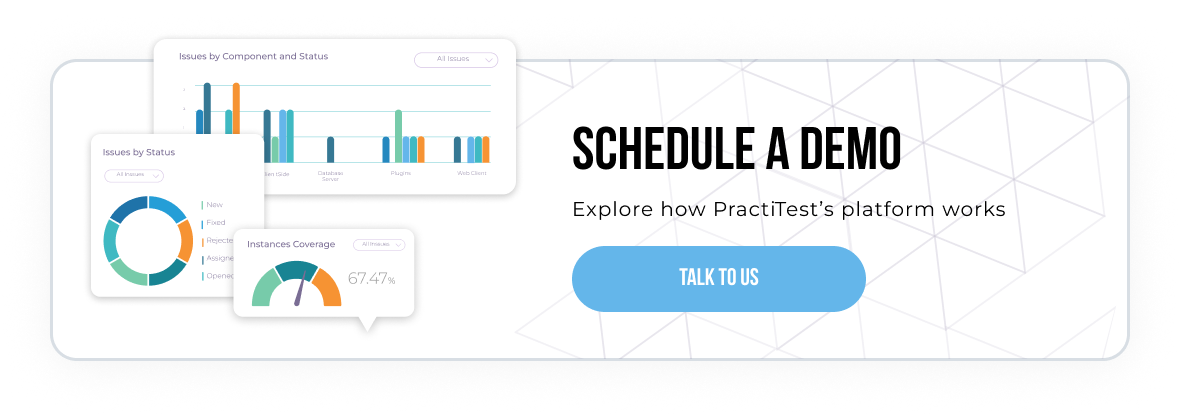Software testing is a comprehensive and complex process that includes executing various testing types, using multiple tools, documents, and so on. Since this process contains many elements and professional terms, sometimes confusion occurs between different components. However, it is crucial to understand and distinguish the differences in order to perform efficient testing. Two vital elements there is common confusion between them are the Use case and the Test case. These two elements are important to the testing process and have both differences and similarities.
In this article, we will provide you with all the essential details, benefits, and differences between the use case vs test case.

What is a Use Case?
A use case is a series of actions taken by a certain actor that interacts with the system to reach a goal. The actor simulates an end-user interaction, and it can be portrayed by a human or external software. Apart from being written in a document, use cases are also visualized with an overview diagram that assists in better understanding the process. The diagram should contain all the components involved when interacting with the system. Among the components within the diagram, you could find different actors, a list of actions, relationships between them, and so forth.
Since use cases are designed based on the system and business requirements specifications, using test cases will help you understand the end-user interaction and the system’s behavior. In addition, well-designed use cases could be useful in later development and testing phases. The described process in the use case could serve as a solid foundation for test cases and other guides.
Advantages of Use Case
- Concentrate on the end-user interaction with the system
- Help understand the system’s behavior based on the requirements
- Give a clear visualize picture of the interaction
- Could serve in later stages as a firm base for test cases
What is a Test Case?
Test cases are documents that contain different testing elements to ensure a specific feature is working as it should. Test cases cover fields like test descriptions, test steps, anticipated results, real results, etc. Due to test cases focused on validating the functioning of a software feature, at the end of the test, the tester compares the anticipated test results to the actual results. If the software works as predicted then the test is passed, otherwise, the status will be failed.
Test cases are also useful in providing good testing coverage. Executing tests properly using solid test cases allows you to assure you don't miss essential steps. Additionally, test case documentation would help to keep the team on track with upcoming tasks. Test cases can be reusable for future use if needed. Before writing a test case, make sure you follow these 10 important guidelines.
Advantages of Test Case
- Validate a specific software feature is working flawlessly
- Ensure good testing coverage
- Keep the team aligned with forthcoming assignments
- Can be reusable for future purposes

Comparison between Use Cae and Test Case
| Use Case | Test Case | |
|---|---|---|
| Definition | A diagram that includes a series of actions taken by an actor that interacts with the system to reach a goal | A document for testers to follow that contains various testing elements, actions, expected results, etc |
| Purpose | To understand the end-user interaction with the system, as well as the system’s behavior | To validate that a particular feature is functioning faultlessly as it should |
| Based on | System requirement specification | Use cases |
| Excuted by | Business user or external software | QA Testers |
| Focused on | The end-user | The results |
| Advantages |
|
|

Summary
In brief, the compound and extensive software testing process is involved using several different elements like tools, documents, and much more. Since this process is composed of numerous parts with professional terminology, there is a common confusion between some of the components. Use case and test case are two highly important testing terms that have confusion between them. A use case is a well-visualized diagram that describes the interaction between different actors and the system. The use case is based on the system requirements and helps to understand the end-user actions and the system’s behavior.
On the contrary, a test case is a document for a tester that aims to verify if a particular feature in the software is working perfectly. The test cases contain various testing secretions, including expected results that compare to real-life results. Additionally to use cases and test cases, test management platforms such as PractiTest, could greatly help you ensure better testing coverage and keep your team focused.























